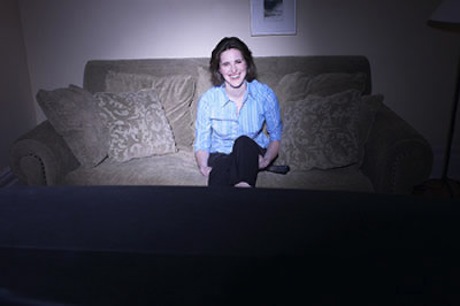TV

Todd: Marika lets talk about television.
Marika: OK.
Todd:Do you like to watch a lot of TV?
Marika: Yeah, I watch a lot of TV.
Todd:Now you've been in Japan for awhile. Do yo watch TV in English or in Japanese?
Marika: I watch TV in Japanese, but if it's on in English I will watch it in English. Yeah, I'm the same way.
Todd: How good is your comprehension? How much can you understand?
If it's a drama I can understand most of what's happening, and definitely the story, but if a talk show and there's young people on and there're speaking fast, with a lot of slang, I don't really understand a lot of what they're saying, although I might know what topic they're discussing, I won't know what exactly their stand is.
Todd:Do you think that TV is bad for people?
Marika: Yeah, I think that TV is bad for people. It's really bad.
Todd:Why?
Marika: Because instead of reading a book or doing something outside, or doing something productive you just sit in front of a TV and absorb bad information or things that don't really help, help you learn anything probably, although Japanese television I think does have a lot of good documentaries and a lot of informative television programs.
watch (a lot of) TV
Do you watch a lot of TV?
When you 'watch TV' you are in front of the television to see what is happening on the program. You are paying attention to what is happening in the program. Notice the following:
- I don't spend a lot of time watching TV now.
- She usually watches TV when she cooks.
same way
I'm the same way.
If you are the 'same way' as somebody else you have similar actions or feelings about something. We may say this to agree with what someone has said. Notice the following:
- I am the same way about television shows.
- Not many people think the same way as you.
slang
If people speak fast and with a lot of slang, I don't really understand.
'Slang' is informal speech that is common in a certain area of the world. It is usually modern speech that may not be understood by people who are not from that area or generation. Notice the following:
- He uses a lot of local slang so it's hard to understand him.
- When you move to a new place you have to learn the slang there.
productive
People should go outside or do something productive instead of watch TV.
If you do something 'productive' you perform an action that helps you reach a certain goal, something that would not be considered to be a waste of time. It could mean cleaning, washing clothes, organizing bills, studying, and so on. Notice the following:
- You will feel better if you go do something productive.
- I feel like I've done nothing productive all day.
absorb (information)
Sitting in front of a TV and absorbing bad information is not helpful.
When we 'absorb information' we hear it or read it, understand it and then remember it. We 'absorb' information when we learn new things. With 'absorb', we have the mental image of a sponge soaking up and retaining water. Notice the following:
- She loves to read the newspaper and books and just absorb new information.
- I have read this article five times now and I just can't absorb the information.
Vocabulary Quiz
productive • absorb



















